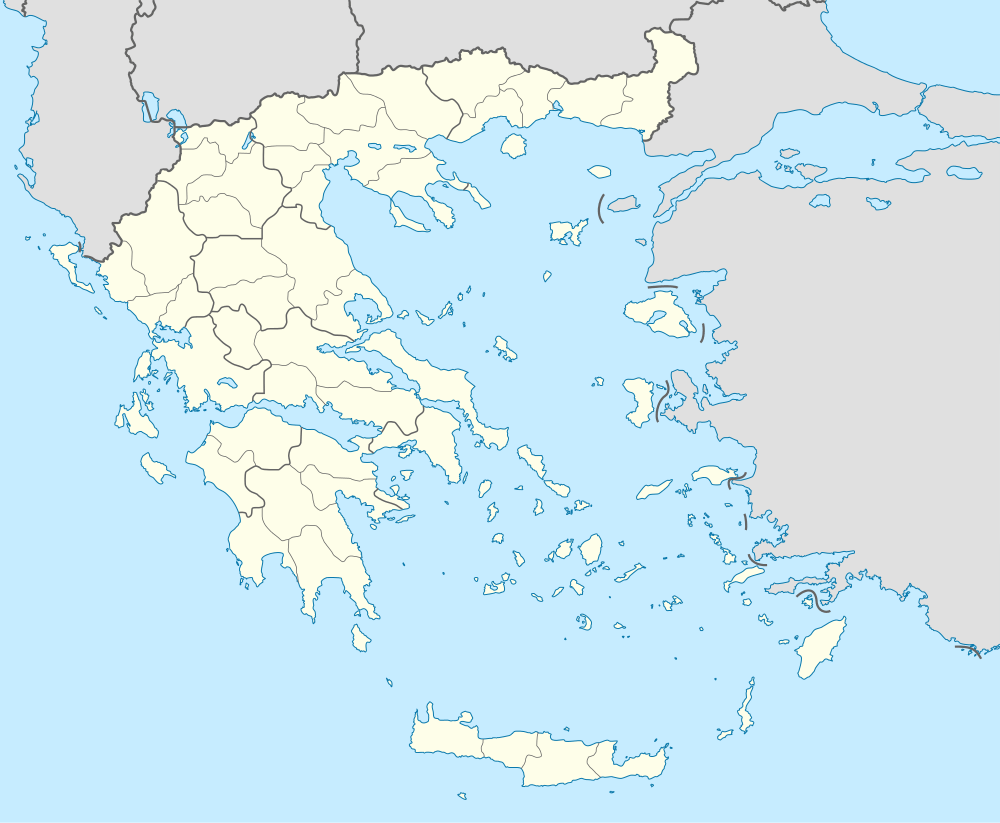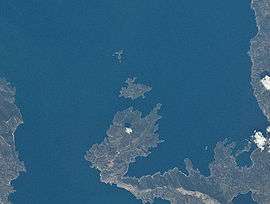Trikeri
| Trikeri Τρίκερι | |
|---|---|
|
Satellite view of Trikeri | |
 Trikeri | |
|
Location within the regional unit  | |
| Coordinates: 39°06′N 23°05′E / 39.100°N 23.083°ECoordinates: 39°06′N 23°05′E / 39.100°N 23.083°E | |
| Country | Greece |
| Administrative region | Thessaly |
| Regional unit | Magnesia |
| Municipality | South Pelion |
| • Municipal unit | 26.8 km2 (10.3 sq mi) |
| Population (2011)[1] | |
| • Municipal unit | 1,353 |
| • Municipal unit density | 50/km2 (130/sq mi) |
| Time zone | EET (UTC+2) |
| • Summer (DST) | EEST (UTC+3) |
| Vehicle registration | ΒΟ |
Trikeri (Greek: Τρίκερι) is a town and a former community in Magnesia, Thessaly, Greece. Since the 2011 local government reform it is part of the municipality South Pelion, of which it is a municipal unit.[2] It lies at the westernmost point of the hook-like Pelion Peninsula on the Pagasetic Gulf. It also includes the offshore islands of Paleo Trikeri (pop. 87) and Alatás (pop. 5). The municipal unit has a total population of 1,353 inhabitants (2011 census) and a land area of 26.817 square kilometres (10.354 sq mi).[3] Its largest settlements are the towns of Tríkeri (pop. 1,022) and Agía Kyriakí (pop. 199), both on the mainland.
From 1947 the island of Trikeri was used as a concentration camp for female antifascist political prisoners during the Greek Civil War. The women and children were relatives of members of the EAM-ELAS, the resistance forces which had fought against fascist occupation during World War II.
In September 1949 political activists from other camps were sent to Trikeri, increasing the number of people held there to 4,700.[4]
References
- ↑ "Απογραφή Πληθυσμού - Κατοικιών 2011. ΜΟΝΙΜΟΣ Πληθυσμός" (in Greek). Hellenic Statistical Authority.
- ↑ Kallikratis law Greece Ministry of Interior (Greek)
- ↑ "Population & housing census 2001 (incl. area and average elevation)" (PDF) (in Greek). National Statistical Service of Greece.
- ↑ Victoria Theodorou (Ed.) 'The Trikeri Journal' in Eleni Fourtouni, Greek Women in Resistance, (Thelphini, 1986), pp. 105 - 111
